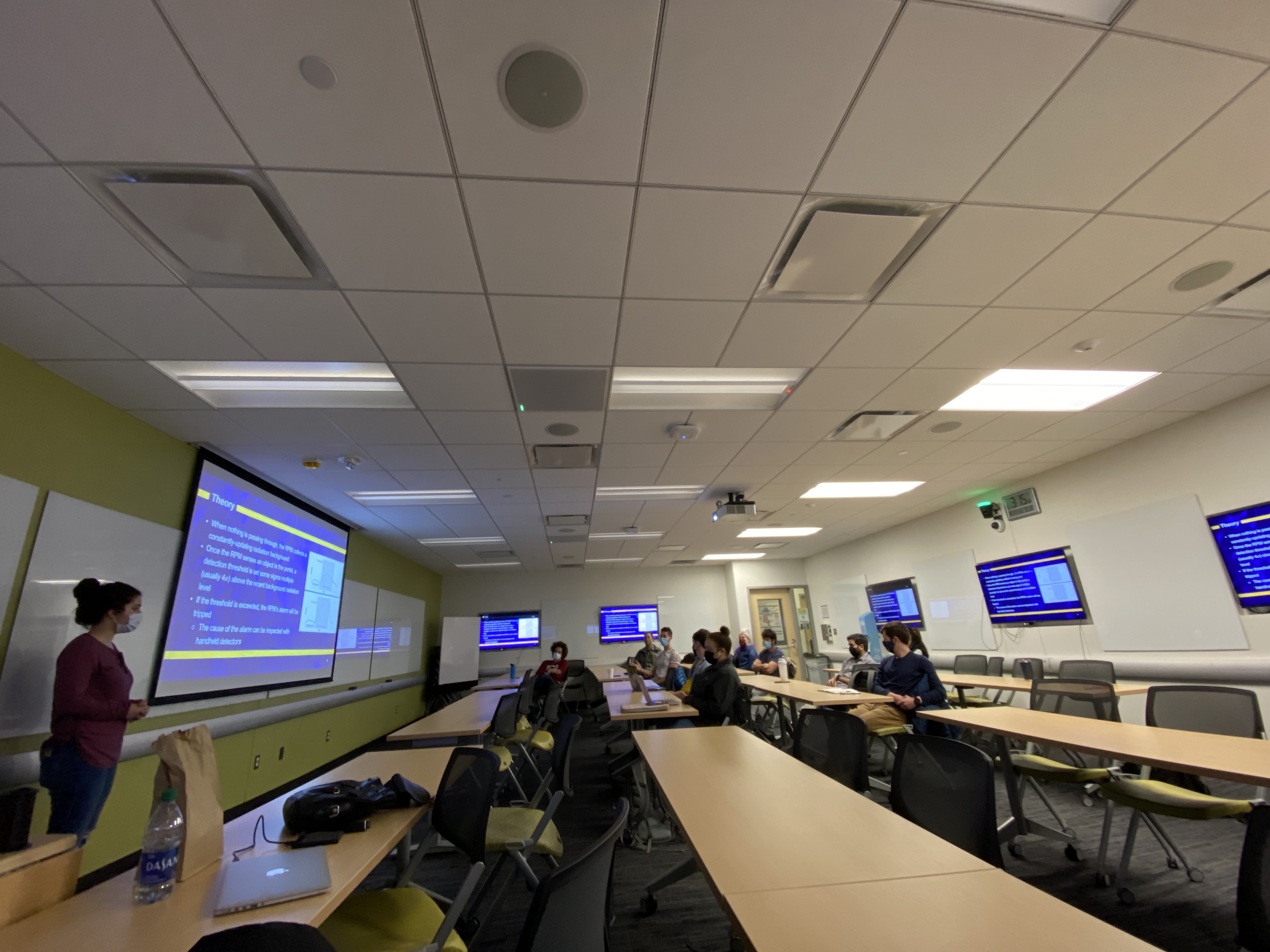Learning how to give great presentations is an important part of your development as a student and will benefit you in your future career. Great presentations can help you breeze through education milestones, such as your thesis prospectus and thesis defense. They can also help you in your future career when you apply for funding, are up for a promotion, or are pitching your idea to a venture capitalist. Improving your presentation skills takes a lot of practice. We can all probably remember the time we fell flat during a presentation: I will never forget the time I tripped on my way to the podium and froze in front of my own slide!
Here are four tips on how to deliver a great presentation.
1. Be enthusiastic and speak clearly
Enthusiasm spreads from the presenter to the audience. If you exude enthusiasm and passion in your presentation, you will likely make a good impression on your audience and they will pay attention to what you have to say. Your message will be better received than if you speak in monotone. Remember that your audience may comprise a diverse group, including people with different backgrounds and whose first language is not English, so speaking clearly and slowly is also very important. Make sure your volume is not too soft or too loud and vary your intonation to maintain audience interest.
2. Know your story
Your presentation should have a clear story line, with a beginning, a middle, and an end. The beginning is about the problem you are trying to solve; your first job is to convince the audience that the problem you are speaking about is one that is worth solving. Then, you can go on to talk about your approach. What did you do to address the problem and what did you find? Finish the presentation with the conclusions based on your major findings and how they address the original problem. You should also finish by talking about the impact of the work, in quantitative or qualitative terms.
3. Know your audience
When giving a presentation, it is important to understand who will be in the audience. Will these individuals be very familiar with your topic? Are they experts in the same technical area, or do they have expertise in complementary areas? Are there going to be students in the audience? If you are presenting at a conference, you should familiarize yourself with the other presenters in your session and the session chair. Doing so will allow you to prepare content at the appropriate technical level. A presentation that is too detailed, or not detailed enough, can cause the audience to lose interest. Striking the right balance will maximize the effectiveness of your presentation.

4. Practice, practice, practice!
A great presentation requires that you practice to make sure that the flow is effective and that you are comfortable with the topic. You should know your key points (if you are using slides, the bullets on the slides can help remind you). You should also time yourself to make sure that your presentation closely matches the allotted time: going too short or too long is not a good approach. If possible, rehearse your presentation in front of an audience to get feedback and incorporate the feedback in your presentation. You can also record yourself and watch the presentation to identify areas of improvement.
Here are three things to avoid in your presentation.
- Reading your slides or notes. This is a sure way to turn off the audience because it comes across as the speaker not being genuine. Similarly, if you are over-practiced and have memorized the entire presentation, the talk will come across as rigid and ineffective.
- Being unprepared. Sometimes we see speakers at the podium who are surprised by their own slides as they appear on the screen. Don’t be one of those people!
- Having too much text on slides. It is better to have visuals such as figures or images, and a few short bullet points of text on your slide. A cluttered slide detracts from your presentation as the audience member tries to read the slide as they are listening to you.
Conclusion
Delivering good presentations is an important part of your success as a student. Our advice is to spend time improving your presentation skills. Over time, you will get better as a presenter and this will have a positive impact on your graduation timeline and beyond!
What have you found useful in improving your presentation skills? Let us know in a comment, below!


Time management for each topic is a major problem during presentations. Sometimes I take too much time to explain a simple topic such that it takes away my time for major topics/conclusions to be covered. I still struggle a bit in it. Do you have any advice for that?
It’s important to structure the presentation so that you have a balance: the background, what you did, what you found, and the conclusion. My advice would be to practice your presentation until you achieve this balance, within the allotted presentation time! It’s also a good idea to get feedback.
Finally, everything comes down to the loop of practice, feedback and improvise. Thank you for the advice.